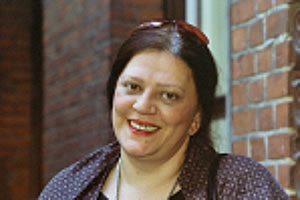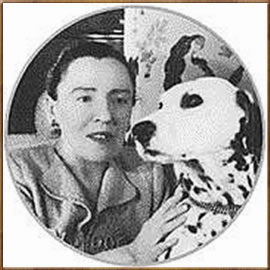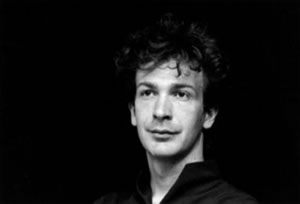De Duits-Israëlische dichter en schrijver Jehuda Amichai werd op 3 mei 1924 geboren in Würzburg. Zie ook mijn blog van 3 mei 2007 en ook mijn blog van 3 mei 2008 en ook mijn blog van 3 mei 2009.
The First Rain
The first rain reminds me
Of the rising summer dust.
The rain doesn’t remember the rain of yesteryear.
A year is a trained beast with no memories.
Soon you will again wear your harnesses,
Beautiful and embroidered, to hold
Sheer stockings: you
Mare and harnesser in one body.
The white panic of soft flesh
In the panic of a sudden vision
Of ancient saints.
Vertaald door Barbara en Benjamin Harshav
Tourists
Visits of condolence is all we get from them.
They squat at the Holocaust Memorial,
They put on grave faces at the Wailing Wall
And they laugh behind heavy curtains
In their hotels.
They have their pictures taken
Together with our famous dead
At Rachel’s Tomb and Herzl’s Tomb
And on Ammunition Hill.
They weep over our sweet boys
And lust after our tough girls
And hang up their underwear
To dry quickly
In cool, blue bathrooms.
Pity, We Were A Good Invention
They amputated
Your thighs from my waist.
For me they are always
Surgeons. All of them.
They dismantled us
One from another. For me they are engineers.
Pity, We were a good and loving
Invention: an airplane made of man and woman,
Wings and all:
We soared a bit from the earth,
We flew a bit.

De Britse schrijver en komiek Ben Elton werd geboren in Londen op 3 mei 1959. Zie ook mijn blog van 3 mei 2009.
Uit: Chart Throb
“Some years from now
The nation had watched Shaiana cry so many times. Heard her voice crack as she struggled to complete her sentence.
‘I just want this so much. I really, really want it so much. It’s all I ever wanted. Since I was a little girl . . . It’s my . . . It’s my . . .’
She couldn’t do it. Words failed her. Her lip quivered, her nostrils flared and a watery film spread across her eyes. The lids closed in an agonized grimace and squeezed out a glistening tear.
Just a tear, a single tear, but such a tear. One of the most scrutinized tears that was ever shed. Few tears in all history would be seen by so many and so often. Over and over again it had teetered momentarily upon the thickly mascaraed lashes of Shaiana’s lower lid before tipping forward and rolling heavily across the downy expanse of that now nationally familiar cheek, tracing its course through the heavy blusher with which the makeup artist had struggled in vain to cover the tiny blemishes on Shaiana’s quivering face.
The people in their millions had absorbed this scene immediately before the last break and also before the break which preceded that. They had seen it at the very beginning of the programme and in the trailers that had played throughout the earlier part of the evening. Those with access to the digital channels had been able to watch the tear for nearly a week already and grainy stills of it had appeared in the press. It was also possible to download it to one’s mobile phone by accessing the ‘preview highlights’ section of the Chart Throb website.
But despite all this massive exposure, up until now that tear had always been a future tear, a tear which, in the endlessly repeated phrase of Keely the presenter, was ‘still to come’.
‘And still to come, it’s all too much for Shaiana.’
‘Still to come, Shaiana struggles to keep it together.’
‘Is Shaiana’s dream turning into a nightmare? All that and more, still to come.’
And so the tear had teetered. A maybe tear, present and entirely familiar but nonetheless a tear in waiting. But now finally it had arrived. No longer a tear that was ‘still to come’ but all of a sudden a clear and present tear, a tear that was on its way. And for the first time (but most certainly not the last) the viewing millions saw it disappear beneath the square white plastic nail of Shaiana’s outstretched finger as she rested her chin upon Keely’s gorgeous skinny shoulder, and failed to find the word for which she was struggling.”

De Belgische dichter en schrijver Johan de Boose werd geboren in Gent op 3 mei 1962. De Boose groeide op in Oost-Vlaanderen en studeerde Slavische talen en Oost-Europakunde aan de Universiteit Gent. In 1993 promoveerde hij op de Poolse avant-gardekunst (met name over Tadeusz Kantor en het Theater van de Dood). Hij werkte als docent aan hogescholen, universiteiten en toneelacademies. Hij leidde een experimentele theaterstudio in Gent. De Boose was geëngageerd in diverse theatergroepen in België en Nederland. Daarnaast maakte en presenteerde hij programma’s voor de Vlaamse Radio en Televisie Omroep (VRT). Hij publiceerde diverse artikelen, maar sinds 2003 wijdt hij zich fulltime aan het schrijven van poëzie, literaire non-fictie en fictie, in het bijzonder over zijn reizen in Oost-Europa. Hij is redacteur van de Poëziekrant en freelance medewerker van Knack.
Niemand hoort het graag
Niemand hoort het graag: dat dit als sterven is
Maar in de vorm van een geboorte.
Je verlaat het ene weefsel voor een ander,
Een engte voor een ruimte, warmte voor pijn.
Je verlaat het, gaat alleen, je gaan is als zingen,
Er is geen ander heenkomen dan het gaan,
Geen andere vorm van zingen
dan zwijgen.
De vrijheid van zwijgen:
Ouden, boeken, doden.
Wie spreekt, voegt weinig toe.
Duizend mijlen reizen met voeten
Duizend mijlen reizen met voeten
Van glas en zwijgend als een monnik
Tot diep in de oude oude eeuw.
De grenzen van een onecht rijk
Afpassen, hier en daar een paal
Slaan, talen horen sterven.
Slapen in de erker van een stolp,
Weten dat de akkers branden,
Dat het bloed kniediep staat
In het slachthuis.
Ontwaken in de zuiverende kou.
Het glas breken. Je voeten wassen
In de Zwarte Zee.

De Duitse schrijver Jens Wonneberger werd in Großröhrsdorf geboren op 3 mei 1960.
Uit: P. Dienemann Nachf.
„P. Dienemann Nachf., Buchhandlung und Antiquariat, befindet sich in der Nähe vom Bahnhof Neustadt in einem alten Haus, dessen Eingang man nur über den Hof erreicht.
Vor der Haustür liegt ein Gitterrost aus Stahl. Bitte die Füße abtreten, steht auf einem Schild an der Haustür.
Vor der Zwischentür liegt ein Fußabtreter aus Bürsten. Bitte die Füße abstreichen, steht auf einem Schild an der Zwischentür.
Vor der Ladentür liegt eine Fußmatte aus Kokos. Auf dem Schild an der Ladentür steht, Bitte die Füße sorgfältig abstreichen.
P. Dienemann Nachf. ist privat. Privat heißt, daß am Montag geschlossen ist. Hier gehen die Uhren anders, sagt Fräulein Leukroth. Fräulein Leukroth ist die Tochter des Nachfolgers und in einem Alter, in dem das Wort Fräulein eine Offenbarung ist. Sie kommt jeden Morgen mit gesenktem Kopf und kleinen, schnellen Schritten in das Geschäft. Jeden Morgen trägt sie ein anderes Kleid. Die Kleider sehen alle gleich aus. Jeden Morgen trägt Fräulein Leukroth einen Stoffbeutel ins Geschäft, der aussieht wie ihr Kleid. Wenn sie kommt, hat sie einen steifen Arm, der beim Gehen fast den Boden berührt. Bevor sie das Geschäft betritt, hat sie sich zweimal normal und einmal sorgfältig die Schuhe abgetreten. Das Linoleum im Laden ist so oft gebohnert worden, daß es kein Muster mehr hat, nur auf den vier kleinen Kreisen um die Füße eines Tisches ist es noch zu erkennen.“

De Duitse schrijver Klaus Modick werd geboren in Oldenburg op 3 mei 1951.
Uit: Vatertagebuch
“Jamie und ich liegen um zwei Uhr im Bett. Emily kommt umfünf Uhr, öffnet unsere Schlafzimmertür einen Spalt breit undruft,
daß sie wieder da sei. Sie und ihre ältere Schwester öffnendie Tür nie so weit, daß sie hereinsehen können. Die Liebe der Elternmöchte man spüren, vor Augen haben lieber nicht.Mittags Tennis.
In der ungeheizten Halle bleibe ich kalt und steif,das sportliche Ergebnis entsprechend dürftig, eher eine Ausnüchterungsübung.Als ich nach Haus komme, sitzen die drei Damenvor dem Fernseher und sehen eine geliehene DVD, Corellis Mandoline.Der Film sei, sagt Marlene, irgendwie wohl so ähnlich wiemein Roman Der kretische Gast. Wenn der von Hollywood verfilmtwird, soll’s mir allemal recht sein. Wäre ein Trostpflasterauf die von Kritikerhäme geschlagenen Wunden.
Den DVD-Player habe ich im vergangenen Jahr als Weihnachtsgeschenk”für alle” gekauft. Jamie und die Mädchenbehaupten, der Vorteil des Geräts sei, daß man nun Filme imnicht-synchronisierten O-Ton sehen könne. Angesichts unsererhäuslichen Dreisprachigkeit – Deutsch, Englisch und fließendesDenglish – ein unwiderlegbares Argument. Und es nervt tatsächlich,wenn beispielsweise Tom Hanks und Bill Murray oderDanny Devito und Ernie aus der Sesamstraße auf Deutsch diegleichen Stimmen haben. Schließ einfach die Augen und stell dirvor, ich sei Tom Hanks …
Heute kosten DVD-Player kaum noch die Hälfte. Im nächstenJahr wird’s vermutlich DVD-Recorder zum gleichen Preis geben.Technisches Gerät veraltet, ohne zu altern, kann nie “antik” werden,sondern verliert seine Funktion und wird deshalb nur billigund häßlich. Das Neue als Schrott von morgen.

De Russische schrijfster Tatjana Tolstaja werd geboren op 3 mei 1951 in Leningrad.
Uit: The Slynx (Vertaald door Jamey Gambrell)
“His hometown, Fyodor-Kuzmichsk, spread out over seven hills. Benedikt walked along listening to the squeak of fresh snow, enjoying the February sun, admiring the familiar streets. Here and there black izbas stood in rows behind high pike fences and wood gates; stone pots or wood jugs were set to dry on the pikes. The taller terems had bigger jugs, and some people would even stick a whole barrel up there on the spike, right in your face as if to say: Look how rich I am, Golubchiks! People like that don’t trudge to work on their own two feet, they ride on sleighs, flashing their whips, and they’ve got a Degenerator hitched up. The poor thing runs, all pale, in a lather, its tongue hanging out, its felt boots thudding. It races to the Work Izba and stops stock-still on all four legs, but its fuzzy sides keep going huffa, puffa, huffa, puffa.
And it rolls its eyes, rolls ’em up and down and sideways. And bares its teeth. And looks around . . .
To hell with them, those Degenerators, better to keep your distance. They’re strange ones, and you can’t figure out if they’re people or not. Their faces look human, but their bodies are all furry and they run on all fours. With a felt boot on each leg. It’s said they lived before the Blast, Degenerators. Could be.
It’s nippy out now, steam comes out of his mouth, and his beard’s frozen up. Still—what bliss! The izbas are sturdy and black, there are high white snowdrifts leaning against the fences, and a little path has been beaten to each gate. The hills run smooth all the way up and back down, white, wavy; sleighs slide along the snowy slopes, and beyond the sleighs are blue shadows, and the snow crunches in colors, and beyond the hills the sun rises, splashing rainbows on the dark blue sky. When you squint, the rays of the sun turn into circles; when you stomp your boots in the fluffy snow it sparks, like when ripe firelings flicker.
Benedikt thought a moment about firelings, remembered his mother, and sighed: she passed away on account of those firelings, poor thing. They turned out to be fake.”

De Franse dichteres en schrijfster Agnès Desarthe werd geboren op 3 mei 1966 in Parijs.
Uit: Le Remplaçant
„A la même époque, je voyais à la télé ou au cinéma des films de Truffaut, de Claude Sautet. Ils étaient pour moi d’un exotisme saisissant. Je restais extérieure aux intrigues et les observais avec la distance étonnée d’un Breton en Papouasie.J’enviais les personnages qui les peuplaient parce qu’ils me paraissaient libres et simples. Ils évoluaient dans un univers dépourvu de cet écho assourdissant qui envahissait le mien. Ils ne se déplaçaient pas avec, à leurs trousses, l’ombre de tous les morts dont l’âme n’a pas trouvé le repos. Ils étaient légers et insouciants, comme le sont proverbialement les enfants. Pour ma part, je ne me rappelle pas avoir connu pareille transparence dans le rapport au monde. Même toute petite, je traînais à ma suite un bataillon d’ectoplasmes dontj’avais l’impression qu’ils me souillaient plus qu’ils ne m’alourdissaient.
(…)
Janusz Korczak écrit de très belles pages sur un bébé mort enveloppé dans du papier. Le paquet est posé sur le trottoir, Korczak l’observe longuement et se demande pourquoi la mère a laissé dépasser les pieds du nourrisson. Il y avait vraisemblablement assez de feuilles pour emballer efficacement le petit corps. Korczak en conclut que cette imperfection est délibérée. La mère a choisi de laisser dépasser les pieds de son bébé, non seulement parce qu’il n’aura plus jamais froid, mais surtout, parce que cela permet aux passants de savoir que ce ballot n’est pas un déchet, un vulgaire tas d’ordures que l’on peut piétiner ou fouiller à la recherche d’un croûton oublié. Ceci est un humain, disent les minuscules orteils. Et Korczak voit dans cette ultime attention de la mère pour son enfant, un concentré de respect et de tendresse.“

Zie voor de vier bovenstaande schrijvers ook mijn blog van 3 mei 2007 en ook mijn blog van 3 mei 2008 en ook mijn blog van 3 mei 2009.
Zie voor nog meer schrijvers van de 3e mei ook mijn vorige blog van vandaag.








